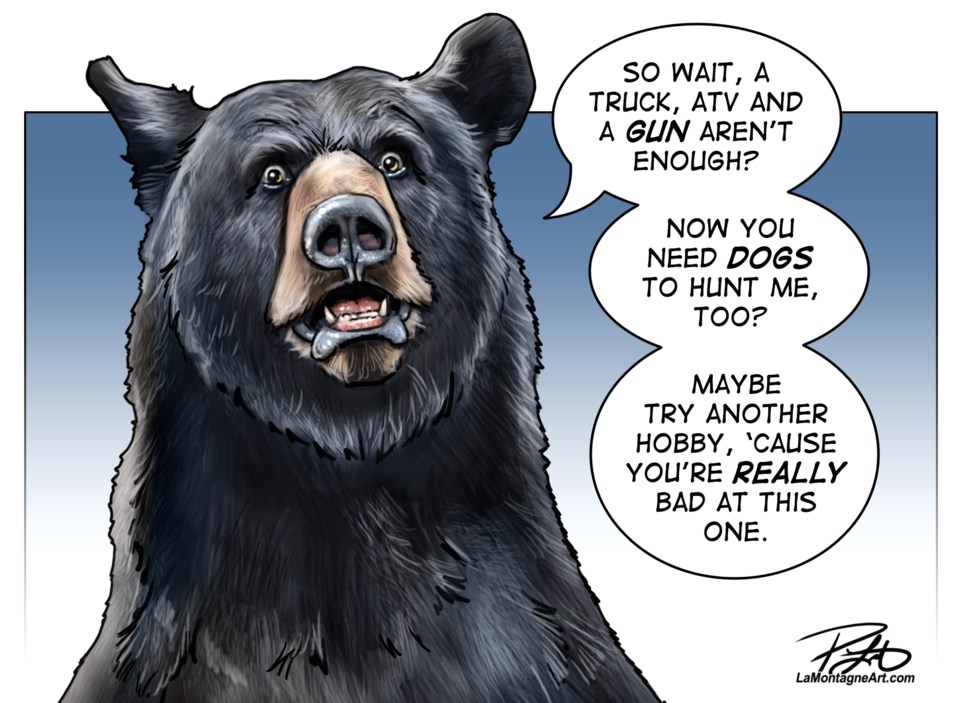It’s never a good sign when wildfire experts and conservationists are caught off guard. Yet, here we go again.
A strong communication line between government and public is essential in a democracy, although some would argue that hasn’t been the case over the past 12 months or so when it comes to Alberta’s wildlife management.
The latest from Alberta Parks and Forestry Minister Todd Loewen’s office is a change to the 2025 Alberta Guide to Hunting Regulations, allowing the use of dogs to hunt black bears in September and October during an open season in certain areas, among others.
According to the province, it is being done to “support predator management in areas where caribou recovery is a concern.”
While it is happening in different areas across the province, one area where the new changes will be allowed to occur is north of Jasper National Park, under the mountain wildlife management units (WMU) seasons.
In a statement to the media, Loewen said the new rules “reflect current scientific knowledge and align with best practices across Canada.”
But a recurring theme coming out of Loewen’s office is a lack of communication with the public and experts, as it has come as a surprise to many.
One can argue that an effort was made in transparency when the changes were quietly put into place, but practices such as allowing the use of dogs in hunting black bears certainly call for more than one sentence on page 58 of the new hunting guide and regulations.
But the communication issues don’t stop here. Other examples include expanding the cougar hunt in Alberta last year, which also included the province allowing cougar hound hunting in more areas of the province. Then, in June 2024, Loewen also authorized the killing of grizzly bears “involved in a human-bear conflict situation” or “in an area of concern” by a member of the public who meets certain criteria.
In all of these cases, the changes to the blueprint were done quietly, which has been questioned by notable people like Banff-Kananaskis MLA, Sarah Elmeligi, who is a wildlife biologist, and Exposed Wildlife Conservancy. The conservation group is calling for the restoration of mandatory reporting and scientific data collection requirements to keep wildlife management decisions grounded in up-to-date information.
What concerns wildlife experts and conservationists is that off-leash dogs can pose a risk to non-target wildlife, including species-at-risk, increased stress levels among local species, changes in behaviours, and damage to local habitat.
Beyond potential implications to wildlife, keeping public participation out of significant issues is alarming at any level of government.
There is an expectation that all forms of government run responsibly. Public trust is a fundamental pillar in any democracy; however, many wildlife experts, conservationists and a growing number of citizens have taken issue with wildlife management decisions under the UCP government.
Any healthy government should be committed to updating the public on significant changes and seeking consultation where need be.
In a democracy, the public can, and should, exercise its right to hold government accountable for its decisions and leadership practices.




